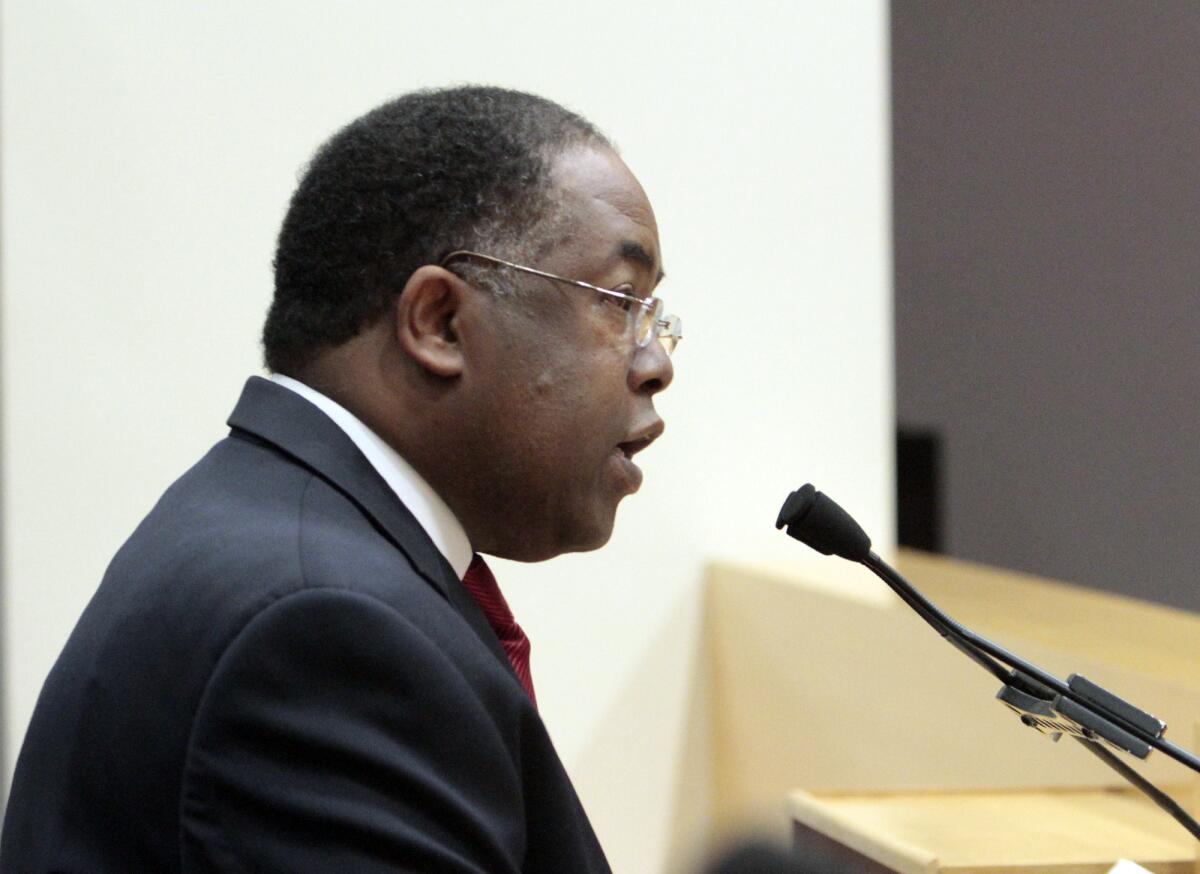Editorial: L.A. County’s open-data initiative must include leaders’ guidance

- Share via
The Board of Supervisors on Tuesday adopted an open-data initiative aimed at publishing much of the information that Los Angeles County collects in its regular course of business, and that’s a good thing as far as it goes. The county is a little late to the game — the city of Los Angeles already has such a program, as do many other large city and county governments — but the open-data movement is still in a formative stage, and the county, as the biggest government in Southern California, is an important entrant into the field.
The move is a welcome example of a new spirit in county government that took hold late last year with the election of two new supervisors, a new sheriff and a new assessor. So it’s tempting to take it at face value and presume that a county culture of transparency will follow. But a reality check is in order.
An open-data initiative — which might provide bulk information about various county functions — should not be confused with and cannot substitute for a county government that makes sharing essential information with the public a top priority. A contract with an open-data firm is a good route toward, say, posting property tax data, enumerating the number of lifeguard rescues at any given beach or comparing miles of streets paved in one district with another, and undoubtedly there will be useful things that creative data miners or entrepreneurs can do with that information.
But the project will not, by itself, make it any easier for the public to quickly find out when a contract is up for renewal, or make it easier to learn when and where there will be a public meeting on, for example, the plan to consolidate three county health departments. It will not reorient the county’s data system so that officials will be able to more quickly and easily respond to Public Records Act requests. And, importantly, it will not, by itself, change the long-standing attitude of county officials toward releasing information.
It will not by itself change Los Angeles County’s current culture of “no” as a general attitude toward the release of information into a culture of “yes.” It will not by itself reverse the county’s many years of fighting requests for information, delaying the release of public documents and hiding behind legal counsel to avoid giving out information that could impose legal liability or otherwise make the county look bad.
That kind of change requires a transformation at the top, among the elected officials, the attorneys who advise them and the professionals who manage information and parcel it out to the public. Releasing data in an open format is a good step, but it is not a substitute for the leadership and orientation toward open government that Los Angles County so desperately needs.
Follow the Opinion section on Twitter @latimesopinion
More to Read
A cure for the common opinion
Get thought-provoking perspectives with our weekly newsletter.
You may occasionally receive promotional content from the Los Angeles Times.









